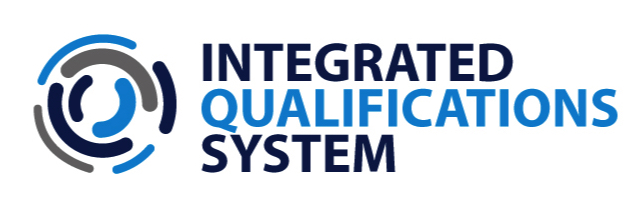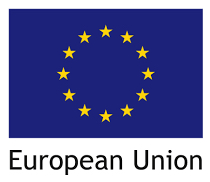INCORPORATION OF QUALIFICATIONS
A market qualification may be incorporated into the Integrated Qualifications System (IQS) at the request of entities engaged in an organised activity in the following areas: economy, employment market, education or trainings.
Such entities may include a trading company, an association of entrepreneurs from a given line of business, an association of manufacturers, a sports union or an association of companies offering training services.

A REQUEST FOR INCLUSION OF A MARKET QUALIFICATION INTO THE SYSTEM MAY BE SUBMITTED BY ANY ENTITY, WHICH DEEMS THIS QUALIFICATION NEEDED AND IS CAPABLE OF SUBSTANTIATING ITS CHOICE.
How do you submit a qualification for incorporation into the system?
File an electronic application with the Integrated Qualifications Register (IQR).
The application should include a detailed description of the qualification. The description should specify:
- learning outcomes to be presented by an individual, who wishes to attain the qualification;
- conditions to be met by the awarding entity (i.e. the entity responsible for the validation process).
The application also includes a statement of reasons, for which a given qualification is needed, a description of the demand for the qualification as well as its typical applications.

IF THE APPLICATION IS CORRECT, IT WILL BE COMMUNICATED TO THE COMPETENT MINISTER.
The minister will examine whether the qualification is of the required quality and if there is demand for it. In the event the minister decides so – it will be incorporated into the Integrated Qualifications System (IQS) and the minister will enter the qualification into the Integrated Qualifications Register (IQR).
The minister has 4 month to make the decision. A single 4-month extension of the deadline may occur.
DESCRIPTION OF A MARKET QUALIFICATION
An application for incorporation of a qualification into the Integrated Qualifications System (IQS) must contain its description.
The description will serve as a guideline for each entity, which will intend to award the qualification in the future – i.e. become an awarding body (AB).
Learn about the elements included in a description of a qualification:

1. Description of learning outcomes
Learning outcomes include knowledge, skills or social competence required in the case of a given qualification.
Each learning outcome is briefly descried and additionally clarified by means of verification criteria – up to several criteria for each outcome.
The verification criteria are actions to be performed by the individual throughout the verification process in order to prove that they posses the required learning outcomes. The criteria describe, in great detail, what is confirmed by the certificate. They are important for both candidates as well as employers.

2. Conditions to be met by en entity in order to become an awarding body (AB)
These are minimal standards, which entities applying for an AB license must comply with in order to ensure the desired quality of the entire process.
These must be adequate for:
- the learning outcomes specified for a given qualification,
- the verification criteria attributed to the learning outcomes.
The conditions specify the following:
- The methods for verification of the learning outcomes, which have been approved for a given qualification, or particular learning outcomes.
- Personnel. In most cases, the conditions specify the requirements applicable to individuals performing the verification – assessors and committee members. Additionally, requirements for individuals responsible for designing the validation process or a validation adviser may be specified.
- Validation procedure as well as organisational and material conditions. These may include the following: required facilities, required equipment, validation time-frame or other important aspects related to the organisation of the validation process.
VALIDATION METHODS
Validation is not a typical exam taken at a school or a university.
Apart from the already known knowledge testing methods, validation also uses innovative solutions. Methods which can be easily adapted to adults’ needs.
Validation methods and techniques as well as examples of their use have been described in the Catalogue of Validation Methods.

3. Conditions to be met by an individual applying for a certificate
It is not relevant, how the individual subject to validation has acquired the knowledge and learned the skills necessary for attaining the qualification. Nevertheless, initial requirements may apply for certain qualifications, where such is the expectation of the market.
This means that the following may be required of a candidate:
- a full qualification on a given level – e.g. a matriculation certificate, a BA degree or a junior high school graduation diploma,
- a particular licence – e.g. a driving licence,
- a confirmation of additional skills – e.g. first aid skills,
- an insurance,
- a health certificate.

4. The qualification description must include other information too
– this information will be relevant for making the decision regarding incorporation of the qualification into the system by the competent minister.
The information includes:
- a qualification description,
- market demand for the qualification,
- its typical application.
THE PROCEDURE FOR INCORPORATION OF A MARKET QUALIFICATION
The procedure for incorporation of a qualification is managed by the competent minister.
The entity submitting the application for incorporation of a qualification into the IQS shall also pay the fee of PLN 2,000 payable upon filing the application.
The role of the minister in the process of incorporation of a qualification:
1. The minister consults the incorporation with interested milieux.

Through the Integrated Qualifications System (IQS) portal, the minister reports the commencement of community consultations and collects opinions regarding the qualification.
2. The minister collects opinions from experts.

The minister seeks experts’ advice on whether there is demand for the qualification on the market. Based on collected opinions, the minister decides whether or not to examine the application.
3. The minister assesses the application.

The following is taken into account:
- the assessment of the learning outcomes required in the case of a given qualification as well as the assessment of the requirements regarding validation,
- the purposefulness of incorporation of the market qualification into the IQS (compliance with social needs, demand of the employment market as well as employers’ expectations),
- adaptation of requirements for the qualification to objective circumstances as well as the attainability of learning outcomes in the foreseeable future,
- resemblance between the market qualification and the qualifications already incorporated into the IQS.
4. The minister assigns a Polish Qualifications Framework (PQF) level.

The minister appoints a team of experts with the task of comparing learning outcomes required for a given qualification to PQF levels.
The team recommends a PQF level for a given qualification. The recommendation also includes a revised – in concert with the applicant – description of the required learning outcomes. The minister communicates the recommendation to the Stakeholders’ Board of the IQS.
In the event the Board assesses the recommendation:
- positively – the minister assigns a PQF level to the qualification,
- negatively – the team of experts prepares a new recommendation taking into account the opinion of the Board. The following recommendation is final.
5. The minister prepares an announcement regarding the incorporation of the qualification into the IQS.

The announcement is published in Monitor Polski. On the date of the publication, the qualification is incorporated into the IQS.

THE MINISTER, SPECIALISTS AND EXPERTS SHALL WORK IN CLOSE COOPERATION WITH THE APPLICANT AT EACH STAGE OF THE PROCESS.
INTEGRATED QUALIFICATIONS REGISTER (IQR)
Each market qualification included in the Integrated Qualifications System (IQS) is entered into the Integrated Qualifications Register (IQR).
The IQR is a public register with information on qualifications awarded in Poland.
The register includes:
- qualifications awarded under the the primary and secondary education system as well as the higher education system,
- regulated qualifications, and
- market qualifications.
Each qualification included in the IQR:
- is confirmed by public authorities;
- has a defined PQF level;
- is subject to quality assurance rules.
Qualification status in the Integrated Qualifications System (IQS)
1
Once incorporated into the IQS, the qualification has the following status: INCORPORATED.
An entity wishing to become an awarding body may apply for the right to perform validation for this qualification.
2
The minister grants the entity an awarding body (AB) license and entrusts, by means of a relevant agreement, a selected external quality assurance entity (EQAE) with the task of external quality assurance with respect to the AB.
3
Once the agreement between the minister and the relevant EQAE has been signed, the status of the qualification in the IQS changes to ACTIVE. From this moment on, the entity licensed to act as an awarding body shall have the right to perform validation and award the qualification.
The minister may grant licenses to other AB wishing to award the same qualification. Such ABs will become entitled to perform validation only after the minister has appointed EQAEs and has signed relevant agreements with them for the performance of the external quality assurance function in such awarding bodies.
QUALIFICATION TYPES
The Integrated Qualifications System is not only about market qualifications.
Qualifications incorporated in the IQS include:
Qualifications awarded under the primary and secondary education system as well as the higher education system

These qualifications are awarded pursuant to the law, which regulates the functioning of the primary and secondary education system as well as the higher eduction system (formal education) – i.e. in schools and higher education institutions. All qualifications of this type are incorporated into the IQS.
These include both full as well as partial qualifications.
Regulated qualification

Awarded pursuant to other laws – outside of schools or higher education institutions. These are an important addition to full qualifications. They appear as demanded by the market.
Examples include the following: a driving licence, a diver’s certificate, an inland skipper’s certificate of competence, medical specialities, etc.
These are partial qualifications only.
Market qualifications

Their awarding is not based on the commonly applicable law.
These are partial qualifications only.
Market qualifications may refer to:
- strictly professional activity,
- social activity, including educational and guardianship activity,
- recreational activity.
Full qualifications
Awarded exclusively by schools and higher education institutions to individuals who have attained certain education levels. Examples include: a matriculation certificate, a BA degree or an MA degree.
- Not all certificates are full qualifications. For example, a high school graduation certificate is not a full qualification. In this case, a matriculation certificate is deemed a full qualification, as it certifies the completion of secondary education.
- Similarly, certificates confirming one’s vocational qualification or certificates of graduation from postgraduate studies are not considered full qualifications.
Partial qualifications
All other qualifications. These include both qualifications awarded by schools or higher education institutions (e.g. a certificate confirming one’s vocational qualifications) as well as those conferred outside of schools or higher education institutions (e.g. a driving licence).
The scope of the required learning outcomes is narrower as compared to full qualifications. In most cases, it is related to a particular area of activity or a line of business.
Partial qualifications may be:
- required in order to be able to practice a profession – e.g. a driving license of a suitable category in the case of a bus driver;
- an addition to a full qualification – e.g. physicians complete specialities in order to be authorised to operate specialist medical equipment.
POLISH QUALIFICATIONS FRAMEWORK (PQF)
Each market qualification incorporated into the Integrated Qualifications system (IQS) has a PQF level assigned to it – as early as at the stage of incorporating the qualification into the system. Qualifications not incorporated into the IQS do not have a PQF level assigned to them.
A PQF level is assigned to market and regulated qualifications by the minister competent for a given qualification. This is done based on the recommendation issued by a team of experts appointed by the minister in order to compare the learning outcomes required for the qualification in question with PQF levels’ descriptions. The recommendation issued by the team of experts is binding for the minister.
Teams of experts compare learning outcomes with descriptions of PQF levels. The experts proceed according to a specified procedure. They must compare key learning outcomes to those provisions of PQF levels’ descriptions, which they correspond to to the greatest extent.
All certificates issued under the IQS have a common visual element: a Polish Qualifications Framework (PQF) mark.


SECTORAL QUALIFICATIONS FRAMEWORKS (SQF) MAY EMERGE IN ADDITION TO THE POLISH QUALIFICATIONS FRAMEWORK (PQF) – THESE SERVE AS AN EXPANSION OF DESCRIPTIONS TYPICAL OF QUALIFICATIONS OF VOCATIONAL NATURE.
PQF (POLISH QUALIFICATIONS FRAMEWORK) level – the scope and complexity of required learning outcomes for a qualification at a given level, formulated by general descriptions of the learning outcomes, known as “descriptors”.
(art. 2, pkt 17)











